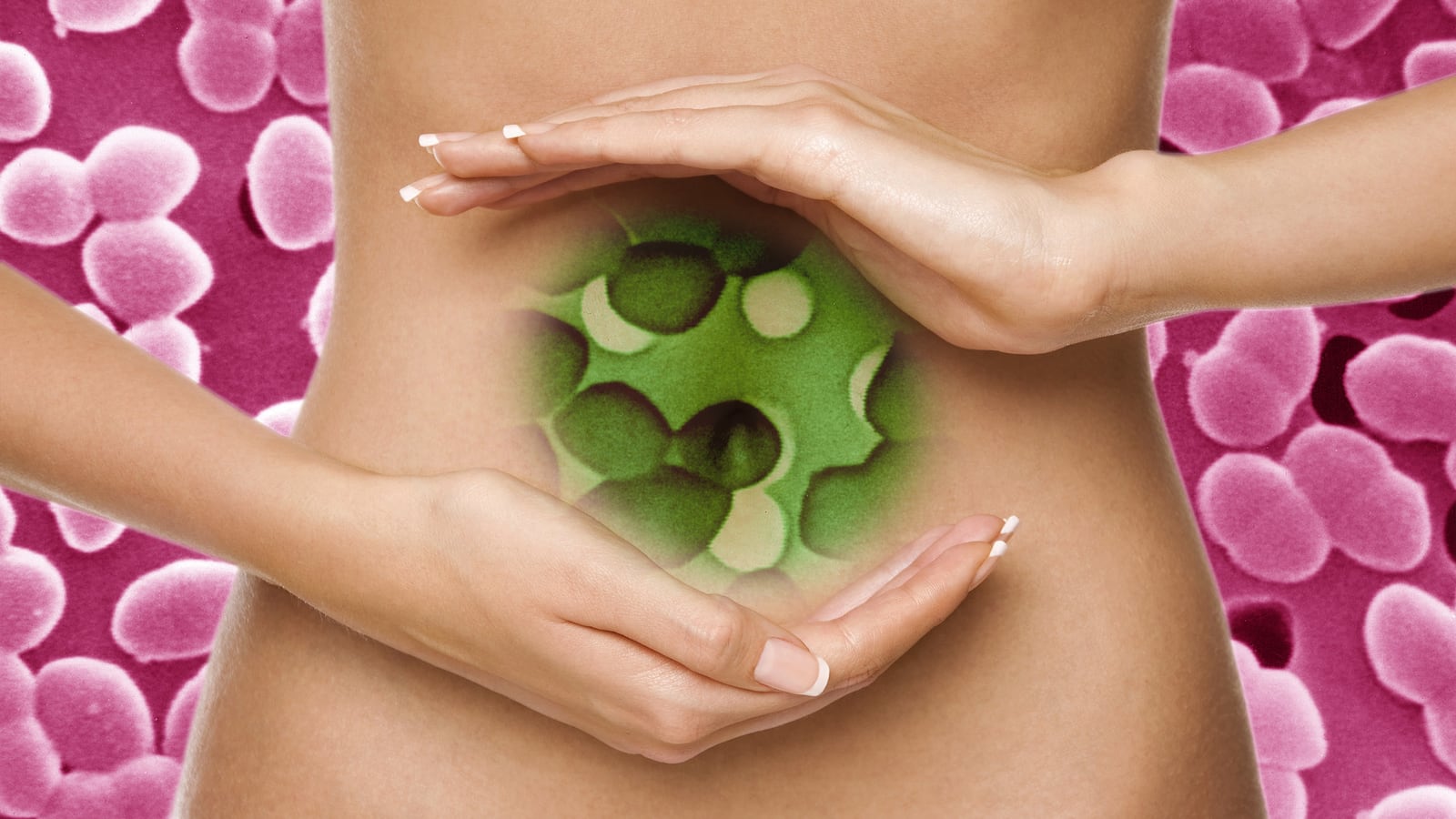The impact of gut bacteria on our health is, by now, impossible to ignore. Over the last couple of years, the press has brought us news that our gut microbiome influence virtually everything from blood pressure and anxiety and depression, to heart disease, diabetes, and other autoimmune diseases.
One of the most fascinating findings is that the microbiome influences body weight. Studies have shown that transplanting feces from obese mice into thin mice cause the mice to fatten up. Researchers have asserted that the “obese microbiome has an increased capacity to harvest energy from the diet." Early findings suggested that the obese tended to have a lot of a certain type (“phylum”) of bacteria, called Firmicutes, and a low number of another phylum of bacteria, Bacteroidetes. At least one study showed that weight loss resulted in an increase in the number of “Bacters” and a decrease in the “Firms.”
Now a new book, The Skinny Gut Diet, by nutritionist Brenda Watson, tracks the progress of people who follow a diet specifically designed to alter the gut microbiome. Watson recommends a high fiber diet, since fiber isn’t just good for bulking up stool, it’s also the primary source of food for many “good” gut bacteria. The diet is also low carbohydrate, which prevents the feeding of the kinds of bacteria that have been implicated in weight gain and food cravings.
It’s now postulated that we are actually under the control of our gut bacteria, which send out signals about the kinds of food they want us to eat. This was nicely explicated in an Atlantic article whose title says it all: Your Gut Bacteria Want You To Eat A Cupcake.
“My diet was designed to prevent carbohydrate cravings,” Watson told The Daily Beast. This means supplying proteins and fats because our bodies tend to need to eat less frequently when we consume them. But consider that when we eat, the bacteria are actually fed first. By starving out the carb-loving bacteria, over time the bacteria that thrive on low carb food would flourish, and we would no longer be controlled by inexplicable cupcake cravings. This is a significant shift in the way we think about nutrition. It’s also a useful way to change our own behaviors: Resisting the cake isn’t about denying ourselves, it’s about denying our bacteria. That might make walking away from dessert a bit easier.
As Watson worked with her clients, she found that cravings for low quality foods diminished as the population of gut bacteria shifted. Consistent with earlier research findings, everyone initially had a high population of “Firmicutes”—which she calls “Fat” bacteria—that dropped over time. On the other hand, the population of the other major group of bacteria, Bacteroidetes, increased.
We can’t really interpret these findings as proof that lowering the number of “Firms” or increasing the “Bacters” is causing weight loss. Watson has simply documented how bacterial populations change with weight reduction—something that has also been observed in the laboratory. Her findings are fascinating, but in a quick fix era, they beg the question—why not just transplant the stool from thin people into the obese?
It’s well documented that fecal transplants are highly effective treatments for ulcerative colitis and the antibiotic associated infection, Clostridium difficile. Yet the FDA apparently was reluctant to give the nod to the treatment. Still, the idea of fecal transplants curing obesity is compelling—and even more compelling is the fact that Canadian researchers came up with a way to put fecal material in pills.
If the FDA has demurred about fecal transplants in life-threatening disease, it’s a safe bet that we’re a long way off from using poop pills to treat obesity. But is it possible that there could be a “probiotic” that causes weight loss? Robust work in this area is coming from Jeffrey Gordon lab at Washington University in St. Louis. They have found that transferring as many as 39 species of gut bacteria are not enough to make the weight shift, but transplanting 54 did the trick.
But even if we can get a quick fix like a weight loss probiotic, maintaining the healthy gut bacteria will still require that we feed them properly. Given the microbiome’s wide impact on health, it’s prudent to select a diet that helps us develop a healthy population of gut bugs for all aspects of our health. This is something that Watson emphasizes in her holistic approach to nutrition—this isn’t just about the vanity of weight loss, this is about the health effects of weight loss.
While Skinny Gut is a valuable contribution to the diet books on the market, it’s only fair to point out what is sure to be a criticism of her work: many researchers no longer believe that the predominance of “Firms” causes obesity. Since the initial studies came out implicating “Firms” in obesity, the Human Microbiome Project (HMP) as well as the American Gut Project have both failed to find that Firmicutes are more numerous only in the obese.
“In the Human Microbiome Project, there were only 24 obese individuals out of 200,” Watson told The Daily Beast. “In addition, the obese people…were all under a BMI of 35, which may have played a role.” Of course, there’s also the possibility that the theory is wrong, and that lowering Firmicutes is a substitute marker for something else, or that what we are interested in is a sub-population of Firms. The list of possibilities is endless.
It’s a certainty that this debate will continue for a while. That’s why actual clinical work like Watson is doing is such a nice contribution. Watson is really part of the movement of citizen scientists who are asking, “Why should we leave science to the scientists?” After all, these days, clinicians have access to inexpensive stool analyses and genetic testing. They can develop hypotheses and test them. People like Watson, working closely with patients, may be just the ones who move the science forward.






